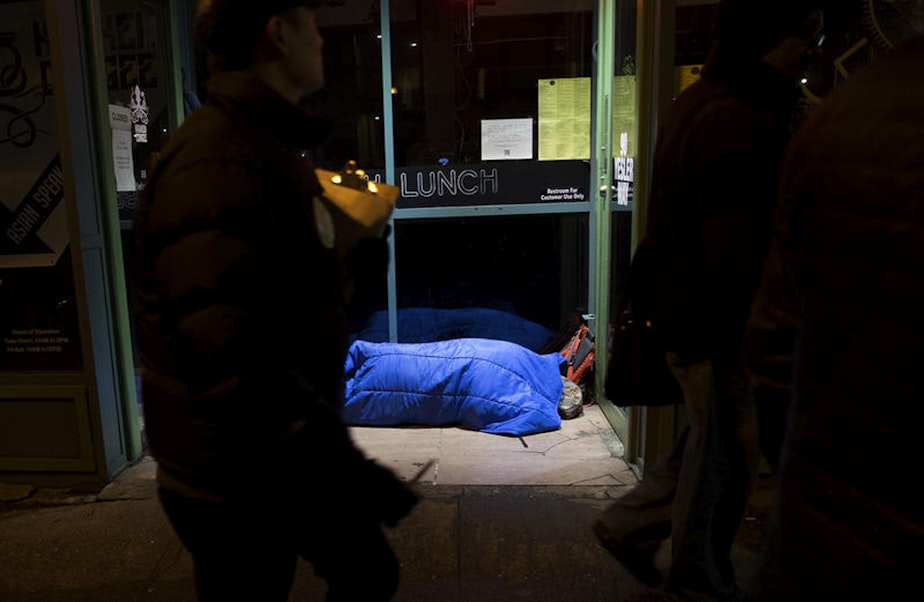More families appear to be homeless in Seattle than before, and other take-aways from this report

Homelessness is up in King County this year. A new report released by the county shows the annual tally of people experiencing homelessness rose five percent this year over last.
What do these top line numbers tell us?
This count, which takes place on a single night each January, shows that 11,751 people were experiencing homelessness in King County. That's about 500 more people than were counted last year.
We also saw the numbers go up in Seattle, which tends to have the majority of the county's homeless population.
What caught your eye in this year's report?
We've seen some good trends continue, like the veteran and youth homelessness continuing to decline, but we also saw some troubling spikes this year.
We saw a sharp increase in the number of families with kids experiencing homelessness in King County, with an additional nearly 500 families counted in January. That's the first increase we've seen in recent years in that population.
Sponsored
Also, usually most families are in shelters, but this year, we saw the number of families living unsheltered, in places like cars or outside, go up pretty substantially.
What else caught your eye in the study?
This year, there was a pretty big jump in the number of people who reported being homeless for the first time in 2020. Unfortunately, this report also showed that people of color and members of the LGBTQ community remained vastly over-represented in the homeless population here.
One stark reminder of that is the fact that Indigenous people make up 1% of King County's overall population, and were estimated to make up 15% of the homeless population in this year's count. That's up even over the last year.
Can you judge how reliable these numbers are?
This annual one night count is really considered a snapshot of homelessness in the county. It's definitely an under-count, and the methodology is far from perfect. It really should be taken with a grain of salt.
What is this report telling us about the causes of homelessness now?
There's a survey that's done after the one night count. It asked people to identify what their main cause of homelessness is. It's worth noting that homelessness is rarely caused by a single factor. Systemic issues like racism and involvement in the criminal justice system or the foster care system aren't really captured in the results.
For 2020, the top causes cited by people were loss of a job, alcohol or drug use, and mental health issues. We also saw the number of people reporting that they are fleeing from domestic violence more than double this year. The county says that could be due to a heavier focus on capturing that information.
A lot has happened since all this data was collected back in January. We're experiencing a global pandemic. I’m wondering what kinds of implications that has now.
These numbers are likely an even greater under-count, and greater under-representation of the picture in this region even than normal. The county expects that these pandemic, and the financial fallout, may have already pushed more people into homelessness, and is definitely putting way more people at risk.
It has also really complicated things like the delivery of services for people who are already homeless. Shelters aren’t a great place to be during a pandemic. And, hygiene options dropped really substantially when businesses and public buildings closed during the lockdown.
The city and the county are going to have a big job on their hands addressing all of this, even as the pandemic is hitting city and county revenues hard.
One recent development is that the Seattle City Council recently advanced the idea of putting a tax on big businesses to pay for a range of things like Covid recovery, but also including affordable housing, which could have an impact on people experiencing homelessness. The city council committee passed a bill out of the committee this week to create a payroll tax. It would be levied on the payroll of high earners making $150,000 or more at companies with $7 million or more in annual payroll. It would raise about $200 million per year.
The full council is expected to vote on that on Monday. There is definitely opposition from members of the business community. They say this is a terrible idea given the recent financial strain, but it does look like it will pass. If it does, it's going to be four times the size of the really controversial big business tax that was passed, and then repealed, in 2018.


